Protein is a macronutrient needed to build and repair muscle. It also accelerates fat-burning metabolism and keeps hunger pangs at bay. Moreover, it helps to slow the release of carbs into your system to prevent the sudden increase in your blood sugar levels. But this does not mean that you should obsessed with protein. Men only need 56g of protein a day while women require only 46g of protein a day. Interestingly, your protein requirement will change depending on your fitness level and goals. If you are a sporty individual, you may require 1g of protein for every kilogram of body weight. Many people go for protein supplements, but you can also find foods high in protein to meet your recommended daily allowance. Let's find out more about it.
Healthy High-Protein Foods
Whether you are a vegetarian or non-vegetarian, you can always find some amazing food sources of protein. Here are some nice options for you to consider.
1. Lean Meat, Fish, Poultry
1 Ounce= 7g of Protein
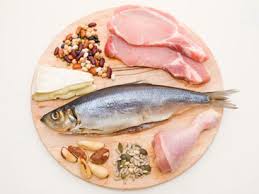 Including turkey, lean chicken, sole, salmon, tuna, and other sources of lean meats will help increase your overall intake of protein. Both fish and lean chicken breasts are nice options because they are packed with protein but are low in fat – avoid fried or breaded chicken or fish though. You can add slices of fish or chicken to tortillas or sandwiches or even use them in casseroles or pasta sauce. They also have a place in stews and soups.
Including turkey, lean chicken, sole, salmon, tuna, and other sources of lean meats will help increase your overall intake of protein. Both fish and lean chicken breasts are nice options because they are packed with protein but are low in fat – avoid fried or breaded chicken or fish though. You can add slices of fish or chicken to tortillas or sandwiches or even use them in casseroles or pasta sauce. They also have a place in stews and soups.
2. Eggs
 1 Large Egg= 6g of Protein
1 Large Egg= 6g of Protein
Eggs contain a number of important vitamins and minerals, including vitamin B12, selenium, vitamin B2, vitamin B6, vitamin B5, as well as iron, calcium, manganese, potassium, zinc, and folate. Eating 1-2 eggs a day will help add protein to your diet. If you do not like hard-boiled eggs, simply whip them into a morning smoothie.
3. Milk
1 Ounce = 1g of Protein
 An 8-ounce glass of milk provides you with about 8g of protein along with a good amount of calcium. You can also consider making a fruit smoothie with milk or enjoy eating a bowl of cereal to get all-important nutrients. Try soymilk if you have a casein allergy.
An 8-ounce glass of milk provides you with about 8g of protein along with a good amount of calcium. You can also consider making a fruit smoothie with milk or enjoy eating a bowl of cereal to get all-important nutrients. Try soymilk if you have a casein allergy.
4. Low-Fat Yogurt
4 Ounces= 6g of Protein
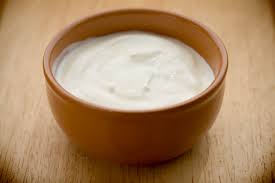 A 6-ounce container of low-fat yogurt provides you with about 6g of protein and other important nutrients essential for a healthy body. Opt for Greek style yogurt to get maximum protein – a 100g serving of this thick yogurt offers about 10g of protein. You can use Greek yogurt as a healthy alternative to butter and heavy cream in different recipes.
A 6-ounce container of low-fat yogurt provides you with about 6g of protein and other important nutrients essential for a healthy body. Opt for Greek style yogurt to get maximum protein – a 100g serving of this thick yogurt offers about 10g of protein. You can use Greek yogurt as a healthy alternative to butter and heavy cream in different recipes.
5. Cheese
1 Ounce = 7g of Protein
 Cheese is among the best foods high in protein but you need to eat in moderation. An ounce of cheese provides you with the same amount of protein you get from an ounce of chicken. Just bear in mind that cheese can be extremely high in calories; in fact, cheddar hard and Swiss cheeses contain 100 calorie per ounce. Try grated Parmesan (20 calories a tablespoon), feta cheese (75 calories an ounce), or soft Camembert (85 calories an ounce).
Cheese is among the best foods high in protein but you need to eat in moderation. An ounce of cheese provides you with the same amount of protein you get from an ounce of chicken. Just bear in mind that cheese can be extremely high in calories; in fact, cheddar hard and Swiss cheeses contain 100 calorie per ounce. Try grated Parmesan (20 calories a tablespoon), feta cheese (75 calories an ounce), or soft Camembert (85 calories an ounce).
6. Nuts
 1 Ounce = 7g of Protein
1 Ounce = 7g of Protein
Replace chocolate and chips with a handful of nuts to increase your protein intake in a healthy way. Nuts contain good fat and promote cardiovascular health. They also improve blood vessel functioning and lower cholesterol levels as well.
7. Vegetables
Half Cup = 2g of Protein
 Vegetables also contain protein, but the amount depends on which vegetable you choose. You get about 2g of protein from a half-cup serving of celery, carrots, and cucumber, but you get up to 6g of protein from every serving of chickpeas, spinach, or broccoli. Be sure to select your vegetables carefully and eat larger portions to increase your protein intake.
Vegetables also contain protein, but the amount depends on which vegetable you choose. You get about 2g of protein from a half-cup serving of celery, carrots, and cucumber, but you get up to 6g of protein from every serving of chickpeas, spinach, or broccoli. Be sure to select your vegetables carefully and eat larger portions to increase your protein intake.
8. Peanut Butter
2 tbsp = 8g of Protein
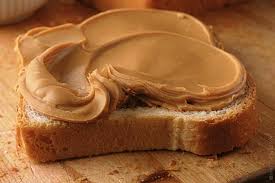 Including peanut butter in your diet is one simple way to increase your protein intake. It is easy to include it in your diet – you can add it to vegetables, sandwiches, wraps, and more. A dab on a celery stalk or an apple will provide you with 16 ounces of protein for the day. Mix a tablespoon of almond butter into your vegetable stir-fries for added benefits.
Including peanut butter in your diet is one simple way to increase your protein intake. It is easy to include it in your diet – you can add it to vegetables, sandwiches, wraps, and more. A dab on a celery stalk or an apple will provide you with 16 ounces of protein for the day. Mix a tablespoon of almond butter into your vegetable stir-fries for added benefits.
9. Black Beans
100g = 22g Protein
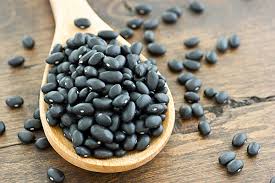 Black beans are one of the best foods high in protein, but other beans, such as soybeans, navy beans, kidney beans, and lima beans are also some great sources of protein. These beans also provide you with soluble fiber that regulate blood sugar levels and keep you full. You can use black bean and other beans to make a great side dish for steak or grilled chicken breast, and they work great in many Mexican-themed dishes too. They also add flavor, texture, and protein to soups and chilis.
Black beans are one of the best foods high in protein, but other beans, such as soybeans, navy beans, kidney beans, and lima beans are also some great sources of protein. These beans also provide you with soluble fiber that regulate blood sugar levels and keep you full. You can use black bean and other beans to make a great side dish for steak or grilled chicken breast, and they work great in many Mexican-themed dishes too. They also add flavor, texture, and protein to soups and chilis.
10. Grass-Fed Beef
4 oz Strip Steak = 26g Protein
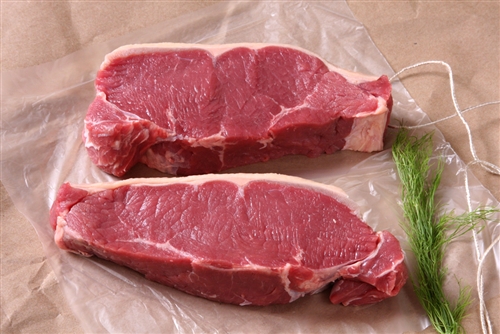 Buying grass-fed beef may cost you more but it will help keep you healthy mainly because it is naturally leaner. It is also low in calories and fat – you get 16g of fat and 386 calories from a 7-ounce serving of grass-fed beef. It also provides you with heart-healthy omega-3 fatty acids that reduce your risk of heart disease.
Buying grass-fed beef may cost you more but it will help keep you healthy mainly because it is naturally leaner. It is also low in calories and fat – you get 16g of fat and 386 calories from a 7-ounce serving of grass-fed beef. It also provides you with heart-healthy omega-3 fatty acids that reduce your risk of heart disease.
11. Pork Chop
100g = 27g of Protein
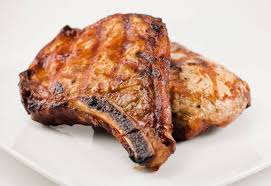 Pork chops can compete with chicken breast in terms of their protein content. You can opt for lean cuts of pork to get protein without having to worry too much about fat. Be sure to enjoy it with a serving of vegetables to make it easier for your digestive system to process it.
Pork chops can compete with chicken breast in terms of their protein content. You can opt for lean cuts of pork to get protein without having to worry too much about fat. Be sure to enjoy it with a serving of vegetables to make it easier for your digestive system to process it.
12. Quinoa
100g = 14 g of Protein
 It is gluten-free, has plenty of protein, and contains essential amino acids as well. It also provides you with potassium, fiber, and other minerals to keep you healthy. As it is a low-glycemic food, it is safe for diabetics to eat. It also helps lower blood pressure, cholesterol, and blood sugar levels. You can opt for a side of quinoa as a substitute for pasta or rice.
It is gluten-free, has plenty of protein, and contains essential amino acids as well. It also provides you with potassium, fiber, and other minerals to keep you healthy. As it is a low-glycemic food, it is safe for diabetics to eat. It also helps lower blood pressure, cholesterol, and blood sugar levels. You can opt for a side of quinoa as a substitute for pasta or rice.
13. Sprouted Whole Grain Bread
Two Slices = 8-12g of Protein
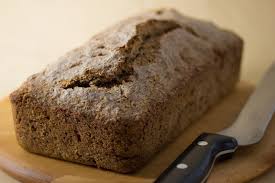 Most breads are loaded with carbs, but sprouted whole grain bread is different. It is low in carbs and has folate-filled lentils with grains and seeds like millet and barley. To enjoy it more, take two slices of this bread and combine with avocado slices, tahini-free hummus, cucumbers, roasted red peppers, tomatoes, spinach, and onions.
Most breads are loaded with carbs, but sprouted whole grain bread is different. It is low in carbs and has folate-filled lentils with grains and seeds like millet and barley. To enjoy it more, take two slices of this bread and combine with avocado slices, tahini-free hummus, cucumbers, roasted red peppers, tomatoes, spinach, and onions.
14. Pumpkin Seeds
100g = 19g of Protein
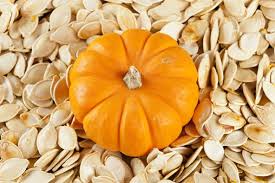 Pumpkin seeds are also on the list of foods high in protein but they also contain high levels of zinc and magnesium. Maintaining high levels of zinc helps protect men from prostate cancer. It helps you sleep better mainly because it contains the tryptophan that produces more melatonin. You can also opt for flaxseeds and sunflower seeds to increase your protein intake.
Pumpkin seeds are also on the list of foods high in protein but they also contain high levels of zinc and magnesium. Maintaining high levels of zinc helps protect men from prostate cancer. It helps you sleep better mainly because it contains the tryptophan that produces more melatonin. You can also opt for flaxseeds and sunflower seeds to increase your protein intake.
15. Guava
1 Cup = 4.2g of Protein
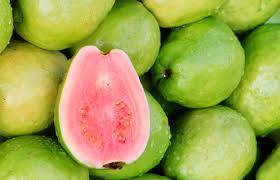 Guava is probably the highest-protein fruit you can get with utmost ease. Along with protein, a cup of guava also provides you with 112 calories and 9g of fiber. It also provides you with 600% of your daily requirement of vitamin C.
Guava is probably the highest-protein fruit you can get with utmost ease. Along with protein, a cup of guava also provides you with 112 calories and 9g of fiber. It also provides you with 600% of your daily requirement of vitamin C.
